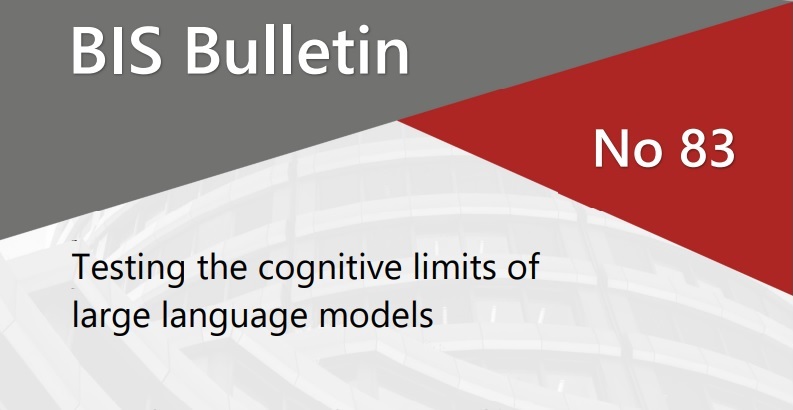
The dazzling virtuosity of large language models (LLMs) has stirred the public imagination. Generative pretrained transformer (GPT) and similar LLMs have demonstrated an impressive array of capabilities, ranging from generating computer code and images to solving complex mathematical problems.
However, even as users are dazzled by the virtuosity of large language models, a question that often crops up is whether they “know” or “understand” what they are saying, or they are merely parroting text that they encountered on the internet during their extensive training routine.
„These questions are not only important in terms of the philosophy of knowledge but are likely to be crucial in assessing the eventual economic impact of LLMs.” according to Fernando Perez-Cruz and Hyun Song Shin, the authors of the BIS bulletin number 83 called „Testing the cognitive limits of large language models”.
Key takeaways
. When posed with a logical puzzle that demands reasoning about the knowledge of others and about counterfactuals, large language models (LLMs) display a distinctive and revealing pattern of failure.
. The LLM performs flawlessly when presented with the original wording of the puzzle available on the internet but performs poorly when incidental details are changed, suggestive of a lack of true understanding of the underlying logic.
. Our findings do not detract from the considerable progress in central bank applications of machine learning to data management, macro analysis and regulation/supervision. They do, however, suggest that caution should be exercised in deploying LLMs in contexts that demand rigorous reasoning in economic analysis.
Banking 4.0 – „how was the experience for you”
„To be honest I think that Sinaia, your conference, is much better then Davos.”
Many more interesting quotes in the video below: